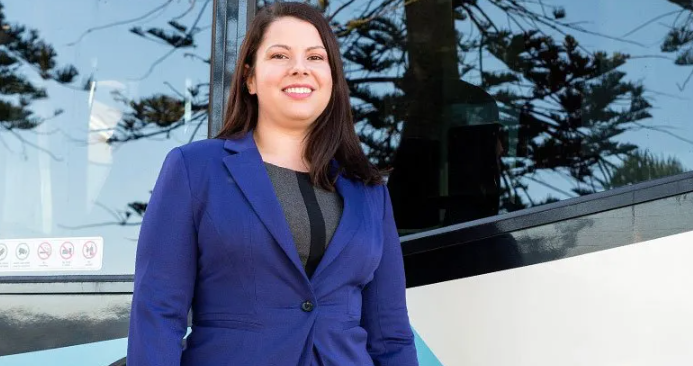Media Release: Greens call for end to disastrous privatisation of Northern Beaches buses

The Greens are calling for an end to privatised bus services on the Northern Beaches following a report this week that found the government sell-off had been a disaster.
A NSW Parliamentary inquiry into the privatisation handed down its report on Tuesday, finding the reliability and effectiveness of bus services had suffered as a result, with less accountability and poorer working conditions for bus drivers.
Transport for NSW last year granted Keolis Downer an eight-year contract to operate services between Manly and Palm Beach, as well as inland to Forestville and Terrey Hills (known as Area 8).
NSW Greens Upper House MP Abigail Boyd, who chaired the inquiry, said in the report that the privatisation of bus services had been “nothing short of a disaster”.
“The fact is this government doesn’t see their role as providing basic services for the people of this state,” Ms Boyd said in a statement.
“For a short-term sugar hit to the budget, they sold the public out, and they’ve trapped us into restrictive contracts that will take years for future governments to unpick.”
Curl Curl Greens Councillor Kristyn Glanville emphasised the failings of the privatisation model.
"Public transport is a public good, and our local buses should be run to put the community's needs first, not run to maximise private profits for multinational corporations based out of France or Singapore,” Ms Glanville said.
“While the state government may call this ‘franchising’, the community sees it for what it is - privatisation of an essential service.
“Just like the State Government has flogged off the local hospitals, poles and wires, and ferries, to corporate investors and multinationals, pretty soon there won't be anything left of our area for the state government to sell off or outsource for offshore profits."
Keolis Downer is a joint venture between French company Keolis (51 per cent) and Australian owned Downer (49 per cent).
Greens candidate for Wakehurst at next year’s state election, Ethan Hrnjak, welcomed the review findings.
"Since the privatisation of bus services across Wakehurst and the Northern Beaches, local residents have seen regular bus cancellations, alterations of routes that hinder the mobility of older people and a distinct failure to maintain the standard of service observed prior to the privatisation,” Mr Hrnjak said.
“In some cases, people are waiting hours for the bus to show up, only to find that the entire route schedule for the day has been cancelled due to driver shortages and a prioritisation of staffing school bus routes over regularly scheduled services.
“Our local residents deserve reliable, publicly owned and sustainable transportation, because experience has demonstrated that we cannot trust the private sector with our critical infrastructure."
Pittwater Councillor Miranda Korzy said the report’s findings tallied with the experiences of Pittwater residents.
“In the lead up to this privatisation, as the government pruned less profitable routes to make Area 8 services attractive to investors, many of us lost local bus services as well as city expresses,” Ms Korzy said.
“That means we must now first travel to a ‘hub’, incurring higher costs and longer travel times as well as creating pressure on parking around B-line bus routes.
“The state government needs to accelerate its current plan to replace all diesel and CNG (gas) buses by 2035 in Sydney, and ensure services on the quieter, zero emissions fleet are run by a government agency in the public interest - rather than for private profit.”
Background
Findings of the report included:
- The recent privatisation of bus services has not resulted in any real market competition because the competition occurs only at the tender phase after which time the market for a particular area is monopolised albeit regulated. This creates a potential situation where the market can be characterised as more of an oligopoly than a free market and in those circumstances does not result in the best service for the travelling public. Under public ownership the benefits of such monopoly control can be passed on directly to the public through low fares and increased service provision and direct accountability.
- The privatisation of bus services in Sydney and Newcastle have resulted in more limited service delivery, higher costs for passengers and worse pay and conditions for bus drivers.
The report made a number of recommendations including:
- That the NSW Government give consideration to taking action to revert bus services to being publicly-owned-and-operated for ... bus services in the four recently privatised Contract Regions in metropolitan Sydney (Contract Regions 6, 7, 8 and 9) that were previously operated by the State Transit Authority.
- That the NSW Government, in partnership with relevant unions, stakeholders and private bus operators, introduce industry-wide minimum pay and employment conditions which are applied to
the bus industry throughout NSW and are inserted into contracts and are considered central to the competitive tender process. - That the NSW Government accelerate the transition to zero emissions buses in New South Wales and provide the required leadership and support regarding procurement and funding to the industry so as to retain a diversity of operators and sufficient competition in the market.
The Report can be found at: https://www.parliament.nsw.gov.au/lcdocs/inquiries/2858/Report%20No.%2018%20-%20PC%206%20-%20Privatisation%20of%20bus%20services.pdf
